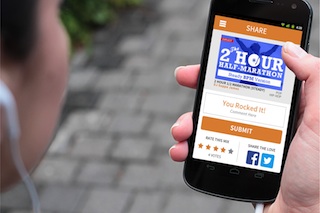 Apple made headlines earlier this year when it announced that health app developers that pulled shared data from other apps via Apple's HealthKit could not give that data to third parties, including advertising networks. The move helped make clear that Apple's motive for creating HealthKit wasn't to aggregate fitness and health-related data and sell ads around it, or help others to do so, and perhaps was intended to draw a distinction between HealthKit and other similar platforms from Google and Samsung.
Apple made headlines earlier this year when it announced that health app developers that pulled shared data from other apps via Apple's HealthKit could not give that data to third parties, including advertising networks. The move helped make clear that Apple's motive for creating HealthKit wasn't to aggregate fitness and health-related data and sell ads around it, or help others to do so, and perhaps was intended to draw a distinction between HealthKit and other similar platforms from Google and Samsung.
In September Apple wrote that developers must “not sell an end-user’s health information collected through the HealthKit API to advertising platforms, data brokers or information resellers” and that developers not use HealthKit’s API or the information collected from it “for any purpose other than providing health and/or fitness services”.
Ad-supported digital health, however, isn't all that common. Yes, there are a handful of very big health content providers with advertising business models, as well as a number of smaller apps that manage to get by on ad revenues. In the past few years though there hasn't been a new digital health company that successfully scaled up using an advertising-based business model.
A new venture, called FitAd, aims to help developers as well as the growing number of fitness wearable makers to find brands. Mort Greenberg, a digital advertising industry veteran, founded FitAd and serves as its VP of sales. At launch, FitAd's interest isn't in aggregating massive amounts of health data, but Greenberg and his team see an opportunity to boost the number of health startups that rely on ads.
"Think of FitAd as data light," Greenberg told MobiHealthNews in an interview. "We are not looking to compile anything. We are not storing any data. We're more interested in real-time. Opening up [a fitness or health] app sends a low tech signal that you are starting an activity. Based on which app it is, we know what you are going to do. If you just started up a running app, you are starting a run. If you are in a health app, you're probably looking to track something."
Greenberg said there are other moments that are good opportunities for brands to reach health app users. When an app user achieves a personal best time or completes their weekly or monthly goal, the congratulations message in the app could be from a sponsor. Those kinds of ads don't require FitAd or a brand to collect data on the end user.
"If we ever ran an ad while you were already on a run, you would stop that app, uninstall it and never want to use it again," Greenberg said. "We are trying to do two things: Be very mindful of the user experience and not to ruin that. And, two, we are trying to capture as little data as possible by being intelligent about the breaks, the starts, the stops that happen when you use an app."
Convincing app developers that these kinds of ads won't ruin the user experience will be key to FitAd's success, as will its ability to work with brands to craft ads that work while not driving app users away. FitAd already counts a few brands as customers.
According to a ClickZ report, FitAd has already helped Amtrak's Acela Express train service place ads in Golfshot, a golf GPS app, running on Sony and Samsung smartwatches. FitAd has also helped place targeted ads for running shoe company Hoka One One into the RockMyRun app on user's wearable devices, too.
While the wearable angle is new, FitAd isn't the first company to try its hand at bolstering health app ad spending.
Tomorrow Networks, which started out in 2011 as a joint venture between Physicians Interactive (PI) and Remedy Systems before getting absorbed by PI, launched as an ad network for brands looking to target healthcare providers using medical apps as well as consumers using various health and fitness apps. While the JV was largely focused on healthcare professionals, it did pursue targeted advertising deals for consumer health apps before it got acquired earlier this year.
Precision Health Media, which now goes by PageScience, has long helped pharmaceutical companies and other health brands find consumers who are likely to have particular medical issues and conditions. The company announced its efforts around mobile health apps back in 2012 with a product called ConditionMatch Mobile.
FitAd's advisors include Dorothy Gemmell, the president of ad agency Havas Life New York, who spent a number of years at WebMD. The other FitAd advisors are Ron Braunfield, president, Snip Snap; Tim Horan, COO, TouchCare; and Tony Blauer, CEO, Blauer Tactical Systems. The company said interested developers can either use their SDK, participate in its private ad exchange, or opt for seasonal or event-driven ad opportunities.












